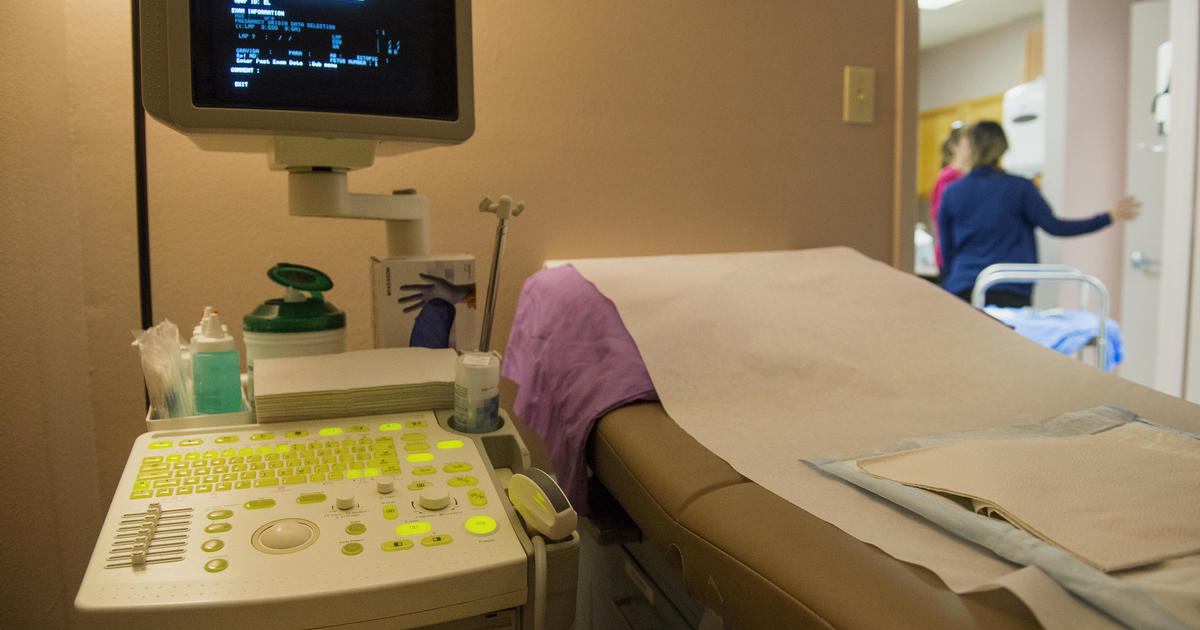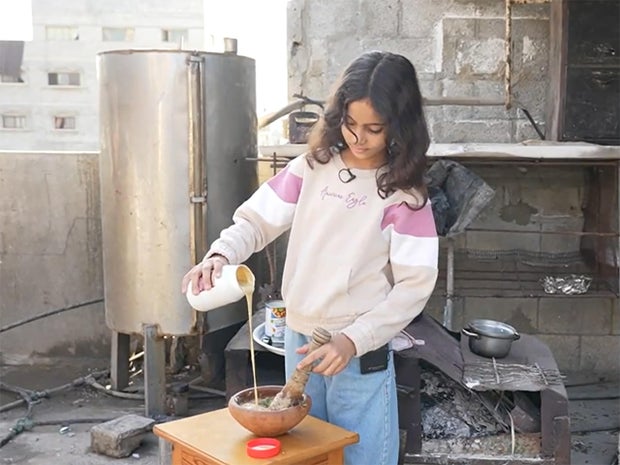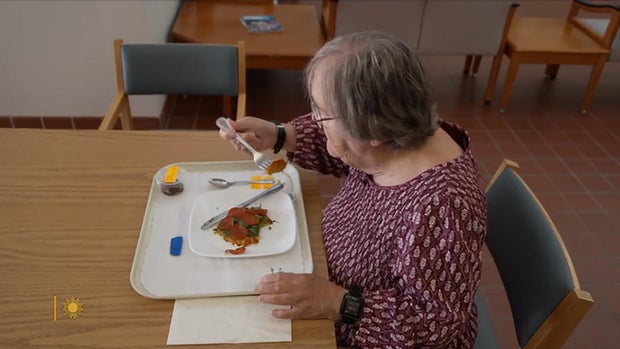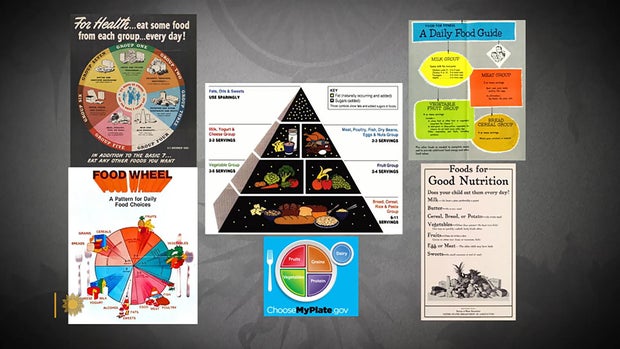CBS News
Texas woman with a fatal fetal diagnosis asks judge to grant her abortion

DALLAS-FORT WORTH – Kate Cox, who lives in the Dallas-Fort Worth metroplex, is pleading with the state of Texas to overturn its abortion restrictions and allow her pregnancy to be terminated after learning that her fetus has a deadly ailment, putting her health at risk.
Just last week, 31-year-old Cox found out her unborn child has trisomy 18.
Also known as Edward’s Syndrome, trisomy 18 is a chromosomal abnormality that often results in stillbirth or an early death of an infant.
Previous ultrasounds revealed multiple additional serious conditions including a single artery in the umbilical cord; a protrusion from the baby’s abdomen, likely an umbilical hernia; a twisted spine likely due to spina bifida, a neural tube defect; clubbed or “rocker-bottom” foot; intrauterine growth restriction; and irregular skull and heart development.
Wednesday, the Center for Reproductive Rights filed an emergency lawsuit on behalf of Cox and her husband.
Cox and her husband have two children, a 3-year-old daughter and a 1-and-a-half-year-old son.
Cox’s previous deliveries were not easy. Both of her children were delivered via cesarean surgery. Cox and her husband hoped to have more children, the lawsuit states.
According to the lawsuit, continuing the pregnancy will have a disastrous effect on Cox’s health. Her OB-GYNs say she runs the additional risk of crippling health issues, like potential infertility.
Cox’s physicians said their “hands are tied” due to the state’s law, and she will have to wait until her baby dies inside her or carry the pregnancy to term, at which point she will undergo a third C-section, the lawsuit states.
“It is not a matter of if I will have to say goodbye to my baby, but when. I’m trying to do what is best for my baby and myself, but the state of Texas is making us both suffer,” said Cox.
Trying to leave the state is her only other choice.
“I do not want to continue the pain and suffering that has plagued this pregnancy. I do not want to put my body through the risks of continuing this pregnancy. I do not want my baby to arrive in this world only to watch her suffer,” Kate Cox said. “I need to end my pregnancy now so that I have the best chance for my health and a future pregnancy.”
Because they fear liability under Texas’ abortion ban, S.B. 8, Cox and her husband filed a lawsuit asking the court to halt the state’s abortion bans temporarily. They also asked the court to spare OB/GYN Dr. Damla Karsan from prosecution so that she could perform the procedure in Texas.
Karsan is also a plaintiff in Zurawski v. Texas, a case which is not seeking to overturn Texas’ ban but rather to clarify what qualifies as a medical exemption.
Earlier this year, a judge ruled that women who experience pregnancy complications are exempt from the state’s abortion ban. The judge’s ruling found the women in the case should have been given abortions, adding they were denied abortions due to “widespread uncertainty” in the medical exception to Texas’ abortion bans.
Attorney General Ken Paxton appealed the ruling, blocking the change to the law and bringing the legal challenge to the state Supreme Court.
Oral arguments in Zurawski v. Texas began Nov. 28.
A hearing date has not yet been set for Cox’s lawsuit.
CBS News
Gazan chefs cook up hope and humanity for online audience

Renad Atallah is an unlikely internet sensation: a 10-year-old chef, with a repertoire of simple recipes, cooking in war-torn Gaza. She has nearly a million followers on Instagram, who’ve witnessed her delight as she unpacks parcels of food aid.
CBS News
We interviewed Renad via satellite, though we were just 50 miles away, in Tel Aviv. [Israel doesn’t allow outside journalists into Gaza, except on brief trips with the country’s military.]
“There are a lot of dishes I’d like to cook, but the ingredients aren’t available in the market,” Renad told us. “Milk used to be easy to buy, but now it’s become very expensive.”
I asked, “How does it feel when so many people like your internet videos?”
“All the comments were positive,” she said. “When I’m feeling tired or sad and I want something to cheer me up, I read the comments.”
We sent a local camera crew to Renad’s home as she made Ful, a traditional Middle Eastern bean stew. Her older sister Noorhan says they never expected the videos to go viral. “Amazing food,” Noorhan said, who added that her sibling made her “very surprised!”
After more than a year of war, the Gaza Strip lies in ruins. Nearly everyone has been displaced from their homes. The United Nations says close to two million people are experiencing critical levels of hunger.
Hamada Shaqoura is another chef showing the outside world how Gazans are getting by, relying on food from aid packages, and cooking with a single gas burner in a tent.
Shaqoura also volunteers with the charity Watermelon Relief, which makes sweet treats for Gaza’s children.
In his videos online, Shaqoura always appears very serious. Asked why, he replied, “The situation does not call for smiling. What you see on screen will never show you how hard life is here.”
Before dawn one recent morning in Israel, we watched the UN’s World Food Program load nearly two dozen trucks with flour, headed across the border. The problem is not a lack of food; the problem is getting the food into the Gaza Strip, and into the hands of those who desperately need it.
The UN has repeatedly accused Israel of obstructing aid deliveries to Gaza. Israel’s government denies that, and claims that Hamas is hijacking aid.
“For all the actors that are on the ground, let the humanitarians do their work,” said Antoine Renard, the World Food Program’s director in the Palestinian territories.
I asked, “Some people might see these two chefs and think, well, they’re cooking, they have food.”
“They have food, but they don’t have the right food; they’re trying to accommodate with anything that they can find,” Renard said.
Even in our darkest hour, food can bring comfort. But for many in Gaza, there’s only the anxiety of not knowing where they’ll find their next meal.
For more info:
Story produced by Mikaela Bufano. Editor: Carol Ross.
See also:
“Sunday Morning” 2024 “Food Issue” recipe index
Delicious menu suggestions from top chefs, cookbook authors, food writers, restaurateurs, and the editors of Food & Wine magazine.
CBS News
A study to devise nutritional guidance just for you

It’s been said the best meals come from the heart, not from a recipe book. But at this USDA kitchen, there’s no pinch of this, dash of that, no dollops or smidgens of anything. Here, nutritionists in white coats painstakingly measure every single ingredient, down to the tenth of a gram.
Sheryn Stover is expected to eat every crumb of her pizza; any tiny morsels she does miss go back to the kitchen, where they’re scrutinized like evidence of some dietary crime.
Stover (or participant #8180, as she’s known) is one of some 10,000 volunteers enrolled in a $170 million nutrition study run by the National Institutes of Health. “At 78, not many people get to do studies that are going to affect a great amount of people, and I thought this was a great opportunity to do that,” she said.
CBS News
It’s called the Nutrition for Precision Health Study. “When I tell people about the study, the reaction usually is, ‘Oh, that’s so cool, can I do it?'” said coordinator Holly Nicastro.
She explained just what “precise” precisely means: “Precision nutrition means tailoring nutrition or dietary guidance to the individual.”
The government has long offered guidelines to help us eat better. In the 1940s we had the “Basic 7.” In the ’50s, the “Basic 4.” We’ve had the “Food Wheel,” the “Food Pyramid,” and currently, “My Plate.”
CBS News
They’re all well-intentioned, except they’re all based on averages – what works best for most people, most of the time. But according to Nicastro, there is no one best way to eat. “We know from virtually every nutrition study ever conducted, we have inner individual variability,” she said. “That means we have some people that are going to respond, and some people that aren’t. There’s no one-size-fits-all.”
The study’s participants, like Stover, are all being drawn from another NIH study program called All Of Us, a massive undertaking to create a database of at least a million people who are volunteering everything from their electronic health records to their DNA. It was from that All of Us research that Stover discovered she has the gene that makes some foods taste bitter, which could explain why she ate more of one kind of food than another.
Professor Sai Das, who oversees the study at Tufts University, says the goal of precision nutrition is to drill down even deeper into those individual differences. “We’re moving away from just saying everybody go do this, to being able to say, ‘Okay, if you have X, Y and Z characteristics, then you’re more likely to respond to a diet, and somebody else that has A, B and C characteristics will be responding to the diet differently,'” Das said.
It’s a big commitment for Stover, who is one of 150 people being paid to live at a handful of test sites around the country for six weeks – two weeks at a time. It’s so precise she can’t even go for a walk without a dietary chaperone. “Well, you could stop and buy candy … God forbid, you can’t do that!” she laughed.
While she’s here, everything from her resting metabolic rate, her body fat percentage, her bone mineral content, even the microbes in her gut (digested by a machine that essentially is a smart toilet paper reading device) are being analyzed for how hers may differ from someone else’s.
Nicastro said, “We really think that what’s going on in your poop is going to tell us a lot of information about your health and how you respond to food.”
CBS News
Stover says she doesn’t mind, except for the odd sounds the machine makes. While she is a live-in participant, thousands of others are participating from their homes, where electronic wearables track all kinds of health data, including special glasses that record everything they eat, activated when someone starts chewing. Artificial intelligence can then be used to determine not only which foods the person is eating, but how many calories are consumed.
This study is expected to be wrapped up by 2027, and because of it, we may indeed know not only to eat more fruits and vegetables, but what combination of foods is really best for us. The question that even Holly Nicastro can’t answer is, will we listen? “You can lead a horse to water; you can’t make them drink,” she said. “We can tailor the interventions all day. But one hypothesis I have is that if the guidance is tailored to the individual, it’s going to make that individual more likely to follow it, because this is for me, this was designed for me.”
For more info:
Story produced by Mark Hudspeth. Editor: Ed Givnish.
“Sunday Morning” 2024 “Food Issue” recipe index
Delicious menu suggestions from top chefs, cookbook authors, food writers, restaurateurs, and the editors of Food & Wine magazine.
CBS News
A new generation of shopping cart, with GPS and AI

Watch CBS News
Be the first to know
Get browser notifications for breaking news, live events, and exclusive reporting.













